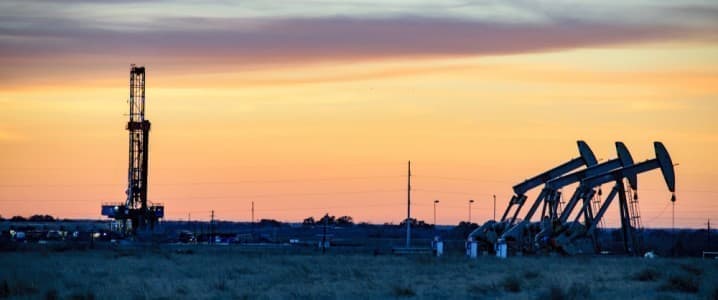Several international oil supermajors are planning to boost production while also promising to decrease their greenhouse gas emissions over the next decade and beyond. This seemingly counterintuitive strategy is the result of pressure from international organizations to decarbonize and the continued climb of energy demand around the world. Royal Dutch Shell, Eni, TotalEnergies, and Repsol are among the supermajors pledging net-zero carbon emissions targets by 2050. However, oil and gas firms have varied approaches to achieving this objective, with some embracing low-carbon oil and others shifting operations towards renewable energy.
Repsol, for example, has increased its investment allocation for low-carbon projects by around $1.13 billion, aiming for 60 percent renewable electricity generation by 2025. Other companies plan to increase their natural gas production as an ‘obvious bridge’ to the energy transition. To this end, Shell is expanding its LNG and petrochemicals market as well as investing in biofuel and green hydrogen developments.
Exxon is extremely optimistic about the changes it’s making, hoping to double its earnings by 2027 while also reducing emissions. The American oil firm outlined a new spending plan this week, increasing annual spending from $16 billion to $19 billion to $20 billion and $25 billion, following more favorable market conditions coming out of the pandemic. Exxon has stated it will be investing $15 billion on emissions-reducing technologies, aimed at cleaning up existing operations through carbon capture and storage technology and other innovations.
Despite pressure from the heads of state governments, many countries’ oil and gas firms are rebelling as the global energy demand continues to rise. In Canada, companies, such as Canadian Natural Resources, Cenovus Energy, Suncor Energy, and Imperial Oil, are planning to cut emissions but not production. Several players hope to do this by incorporating innovative new techniques into existing operations, such as the use of geothermal energy in oil sands crude production.
Supermajors around the globe are embracing low-carbon oil instead of making the outright transition to renewable alternatives. With Big Oil arguing that renewable energy operations cannot meet the growing global demand for energy at present, several are fighting to keep oil operations running in a more environmentally friendly way. Almost all of the world’s supermajors have announced investments in CCS technology, a move that, Brad Page, CEO of the Global CCS Institute, believes could provide the funding needed to scale up operations and “limit the impacts of global warming.”
Other oil companies are improving methods of refining oil into petrochemical products, which are expected to remain in high demand as the need for crude wanes. China’s Sinopec, for example, has developed a steam-cracking technology to convert oil directly into petrochemical products such as ethylene and propylene. This could not only reduce the costs and production times associated with refining but, if successful, would dramatically reduce carbon emissions from the process.
Norway’s Equinor, alongside several other multinationals, has now moved its oil production away from carbon-intensive areas of operation to spots where it can pump low-carbon oil more easily. Focusing on upstream production, Equinor is partnering with international players, such as Russia’s Rosneft, to develop low-carbon solutions for their joint projects going forward.
Related: OPEC+ To Add 400,000 Bpd In January Despite Oil Price Plunge
Moves like these could allow oil majors to continue pumping oil at a high rate while keeping their pledges to lower emissions. However, some energy experts are accusing Big Oil, once again, of greenwashing, suggesting they cannot have their cake and eat it.
Environmental organizations recently accused investment bank JPMorgan of supporting Big Oil in reducing its carbon intensity, but not necessarily its production levels, rather than backing the international communities’ aim to act on climate change. Several banks are backing oil firms’ aims to reduce the ‘carbon intensity’ of their oil, rather than the quantity of crude they produce, which environmentalists say still has a negative impact on the planet.
Some oil companies, particularly in Europe, are trying to strike the balance between transitioning towards renewable alternatives and maintaining their low-carbon oil production while demand remains. BP, in particular, is welcoming the transition with plans to increase its investments in low-emission businesses tenfold, around $5 billion annually.
However, U.S. giants Chevron and Exxon appear to have no intention of moving away from oil, as they continue to expand their oil operations around the world. This is perhaps due to stricter regulations coming into place on oil and gas across Europe, making the outlook for a future in fossil fuel more uncertain.
But if oil supermajors manage to achieve low-carbon production while demand is still high and when renewable operations are not yet ready to provide the world’s power, can this be considered greenwashing? Big Oil will have to convince the world over the next decade, as they continue to pump massive amounts of crude, that low-carbon oil does what it says on the tin, reducing greenhouse gas emissions while not causing excessive harm to the environment, as the rest of the world transitions to green alternatives.
By Felicity Bradstock for Oilprice.com
More Top Reads From Oilprice.com:
- Guyana To Become The 11th Country To Produce Over 1 Million Bpd
- The Electric Vehicle Charging Market Could Be Worth As Much As $1.6 Trillion
- Nightmare November For Oil As Prices Plunge Again


















Past geological periods have had ten times the atmospheric concentration of carbon dioxide we have today, with no runaway global warming.
Greenhouse plants grow stronger and healthier with PPM of CO2 as high as 1000. Today, we are at a small amount of atmospheric CO2 of only 400 PPM. And Big Oil wants to spend billions to capture the very source of life on earth, Carbon Dioxide?